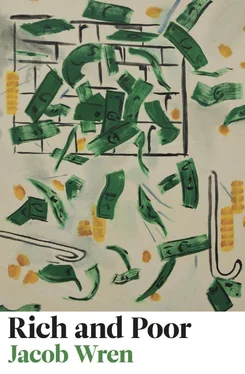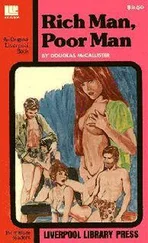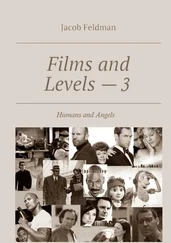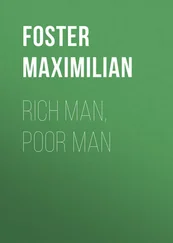There is one other anecdote I recall from that particular birthday (there were so many parties around that time, all the excesses of those years) and I’m not sure how it happened that the judge who had presided over our recent victory-against-the-odds was in attendance. “This wouldn’t look good if certain individuals were to see us right now,” he said to me in passing. I wasn’t sure what he was referring to; I was refilling his champagne glass so perhaps it was only that, but I remember replying that “actually, I think it would look fantastic.” Later that night, during a quiet moment when the party was dying down, he pulled me aside and chided me, told me I shouldn’t be so glib, we had gotten off this time, by the skin of our teeth, but next time we might not be so lucky, the usual sort of thing, a friend telling a friend what was or was not in his future best interest. But I was having none of it. “What good is life if you can’t make a few carefree jokes?” I remember patiently explaining, possibly raising my voice as I did so. The world was full of dangers, full of journalists who wouldn’t mind making a quick buck at anyone’s expense, but when it was time to laugh, time to enjoy, we shouldn’t let anyone stop us. What was the use of victory if you couldn’t turn it into pure pleasure when the need arose to let off a bit of steam? I could tell he didn’t agree, but I was drunk and he humoured me the best he could. And what’s more I didn’t mean a word of it. I was bored. Glib jokes, my own or from others, were boring. Making drunk judges unnecessarily nervous was boring. And I had no idea what adventures still lay in store.
2.
I had bought precisely one share, and was therefore a shareholder, well within my right to attend the annual meeting. I was nervous they would turn me away at the door, that my limited credentials would prevent me from making it in, but soon realized whoever was at the door couldn’t have cared less as he passively waved me through. I sat in the large auditorium with hundreds of others. It would be the first time I would see him in person. I wondered how I might react, if my body would tense as he walked on stage, if I would cry out in anger at some particularly obnoxious statement.
But first a series of boring speeches, starting with one that outlined each of the divisions and their relative financial health. Much like I had felt back when I was filling my small apartment with annual reports, now, as I listened, every figure, every profit, every explanatory clause, hit my ears soaked in blood. I wondered whose lives had been ruined in these profits — through long years of barely paid labour, through environmental illness, through families torn apart, through stolen resources that could have easily been put to better use.
Many divisions had to be accounted for and, as I suppose they claimed every year, all of them had achieved record profits, all the usual bullshit. Yet the room warmly received each statement, whitewashed history of the recent past, experiencing every figure as another dollar in their disembodied pockets, politely applauding. If I listened closely it was only vague numbers and vaguer facts, completely detached from how such business transactions took place in the actual world, how they struck people’s lives, how they cut into the earth. If I understood correctly, the divisions were entertainment, food and biotechnology, natural resources, banking and investment, communications and what seemed to be some sort of private military, though no one directly said so. The various euphemisms for killing were not particularly ingenious. He ran through it all so quickly, like he was running through the world with his words and slides, like the world was running out.
Next was another man in a bland suit for the projections, possible futures for each division and the organization as a whole. Fuck, he must have thought he was smooth up there, with his endlessly colourful array of charts and statistics, again and again hard-selling how every aspect of business was going to improve, and if no improvement was forecast then quickly proposing adjustments that would make it all better, then predicting further improvements based on these adjustments. And yet as I listened I couldn’t hear even a smudge of reality in his approach, in his economic ontology, in his pure spun computer models of pure fantasy, where only money mattered and everything else was either a resource or an obstacle. All he talked about was the future and there was no future. There would be no future if people like this, language like this, was in charge.
A sentence caught my ear and I wrote it down in the small notebook I’d brought along, not his exact words but something like: “On our current trajectory we project a three-fold increase in primary markets, with slight discrepancies for profit margins during periods of political instability.” And I thought, on our current trajectory I predict war, famine, general human misery and eventual extinction. Or I thought, yes, political instability, by which he might mean war, famine, general human misery and eventual extinction. But people have been predicting apocalypse from the beginning of time. It’s a prediction that leads nowhere. Some kind of wishful thinking. Some day a real rain will come and wash all the scum from these streets. I cannot be that rain. I can only kill one man. One miserable death that I dream will have many positive resonances far into the future. There is no use worrying about extinction. I return my attention to the presentations at the front of the room.
But I have already missed something. They are announcing the man in charge, the man I came here to see. He is already walking on stage, and I feel nothing; no anger, no sadness, no violence. He is just a man, almost a joke or self-parody. The way he speaks is likable and friendly, but of course I do not like him. He knows how to work the crowd. They have laughed at three of his jokes and he’s barely started. I know he did not write those jokes himself. He even admits in his book that he’s not naturally funny. He explains that he’ll keep his remarks brief so there will be plenty of time for questions, and that his colleagues have already done such a good job of telling us everything we need to know. He says he has never been so good with facts, with projections, with technical details. For that he hires the best people in the business and leaves them alone to do their thing. (Though he also mentions that none of his top executives ever forget their ongoing responsibility to the shareholders.) What he has always been best at is vision, expanding, taking risks, risks that result in success and profit. I can imagine him under investigation, claiming he didn’t know this or that technical detail and therefore cannot be held accountable. And then the usual bullshit about how no corporation exists without vision, that a business must not be a faceless, soulless entity but instead must be visionary. I’m not counting, but I think he says vision or visionary at least a dozen times.
During the questions I notice a subtle shift in his persona. I can’t quite fix it. It’s like every answer he gives comes along with a subtext, the message he’s trying to convey: this company is not about me but about you. While during his introductory remarks it was all vision and ego, now it is like he has carefully locked his ego in the backroom, all his charm focused on making the individual asking the question feel important. I see his skill and talent, the masterful manipulation, and feel lost and alone. I am the only one in this giant room able to see him for what he is. To a question about global health risks implicit in biotechnology, he answers that without taking genuine risks, without scientific curiosity, there can be no progress. And while they are always careful to take into account the health and safety of the consumer, it is also important never to be so careful that one fails to question the prevailing wisdom, because if no one had ever done so, we might still think the sun revolves around the earth. And then I realize someone in the audience actually asked something, challenged the implicit validity of one of the divisions, and in some ways the spell is broken. There are others willing to challenge him. In some small way I feel a bit less alone.
Читать дальше












